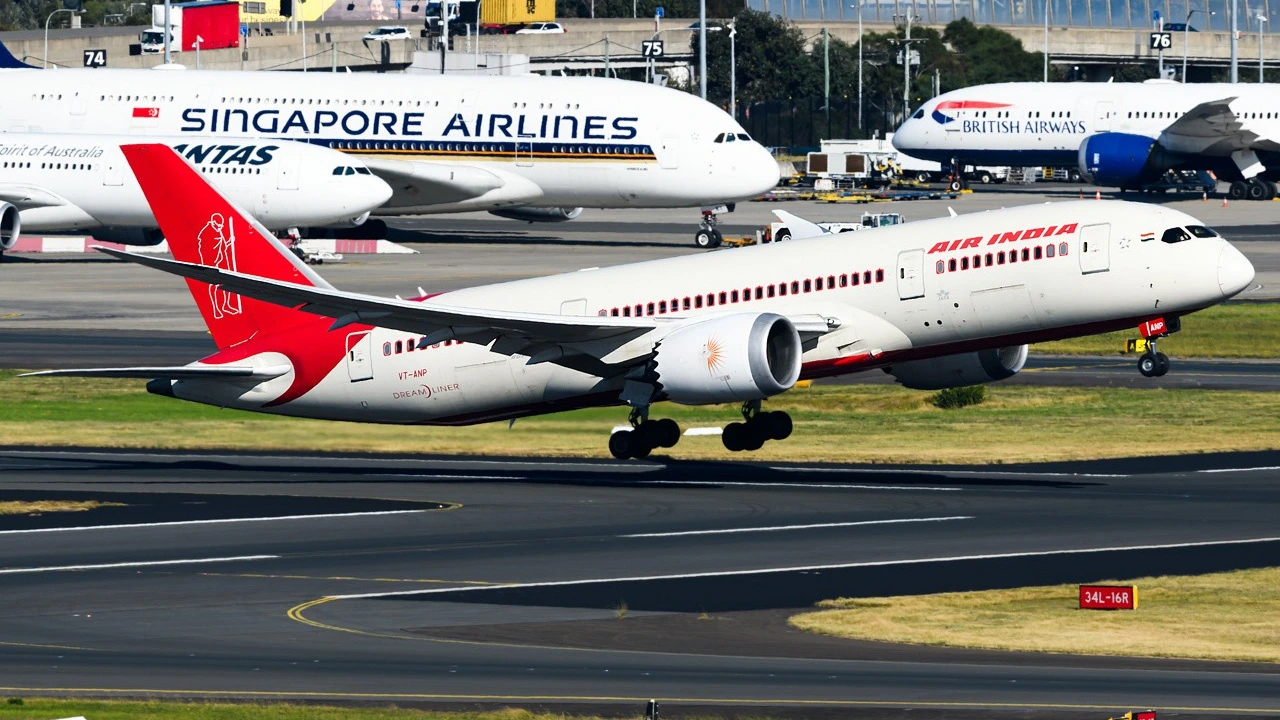Air India (AI), the national flag carrier now under the strategic stewardship of the Tata Group, is poised for a significant global expansion, planning to forge over 10 new codeshare agreements in the current fiscal year, FY25.
This aggressive push is designed to dramatically enhance connectivity across key markets in North America, Europe, and Africa, firmly positioning Air India as a formidable competitor on the international stage. The strategy is intrinsically linked to strengthening its hub operations at Indira Gandhi International Airport (DEL), cementing its role as a pivotal gateway for global travel, ultimately contributing to a more interconnected and equitable global aviation landscape. Since its acquisition by the Tata Group, Air India has undergone a remarkable transformation, having already established 19 codeshare partnerships. These alliances have effectively extended the airline’s reach to over 80 global destinations, utilising major international hubs such as Frankfurt (FRA), Toronto (YYZ), and Newark (EWR). This network expansion provides passengers with streamlined access to international destinations that would otherwise necessitate complex multiple bookings or cumbersome transfers, significantly improving the travel experience for a diverse demographic of travellers.
Beyond codeshare arrangements, Air India maintains interline partnerships with an impressive 109 carriers, collectively unlocking connections to over 800 global destinations. This robust web of alliances demonstrates a shrewd business strategy, allowing the airline to seamlessly integrate into the intricate global aviation ecosystem while retaining crucial operational flexibility. This multi-layered approach to network expansion is critical for Air India’s ambitious vision to achieve an annual growth of 25% in its international operations over the next three years, a target already showing promising alignment with strong performance in FY25. According to senior Air India officials, these codeshare agreements serve a dual purpose. Firstly, they strategically fill crucial gaps in the airline’s direct flight network, enabling rapid market penetration without the immediate capital expenditure associated with new aircraft acquisitions or route launches. Secondly, these partnerships are instrumental in optimising aircraft utilisation and bolstering long-haul profitability by significantly increasing feeder traffic – passengers from smaller cities who connect through Air India’s primary hubs to long-haul international routes. This symbiotic relationship between domestic and international networks is vital for sustainable growth.
Each new codeshare agreement brings incremental value, notably by enhancing Air India’s visibility within global reservation systems. This heightened presence is crucial in a fiercely competitive global aviation market, where established carriers from the Middle East and Europe have traditionally held a dominant position in serving Indian outbound traffic. The effectiveness of this strategy is evident in the tangible results: over 25,000 passengers now travel weekly through these collaborative arrangements, leading to a doubling of international passenger volume and a remarkable tripling of booking revenue for the airline. Air India’s expansion model is deliberately two-pronged: simultaneously building a direct presence in key secondary markets and leveraging codeshares to penetrate untapped regions. This hybrid approach offers an agile and cost-effective pathway for rapid global market penetration, circumventing the immediate financial and logistical burdens of launching new direct routes. According to Directorate General of Civil Aviation (DGCA) data for 2024, Indian carriers collectively transported 48.5% of international passengers to and from India. Within this, the Tata Group airlines – comprising Air India, the recently integrated Vistara, and Air India Express – commanded a significant 26.1% share.
This burgeoning market presence, coupled with an aggressive global strategy and ongoing integration efforts, positions the Tata aviation group as a formidable challenger to long-established global carriers, marking a new era for Indian aviation on the world stage.
Also Read: Navi Mumbai Airport Opening Delayed to August 2025


